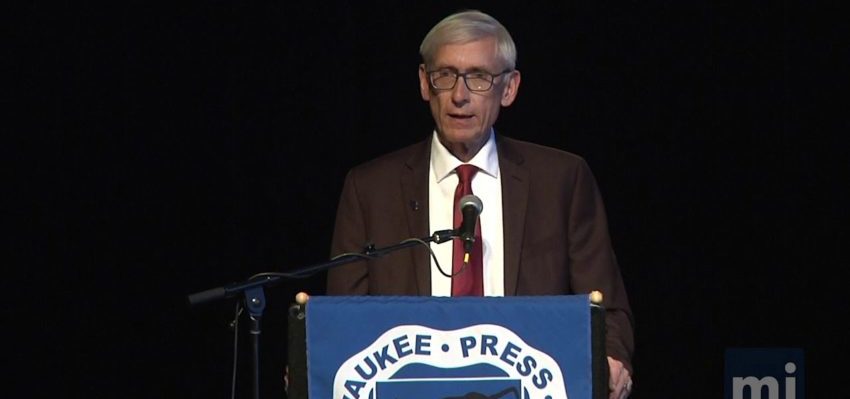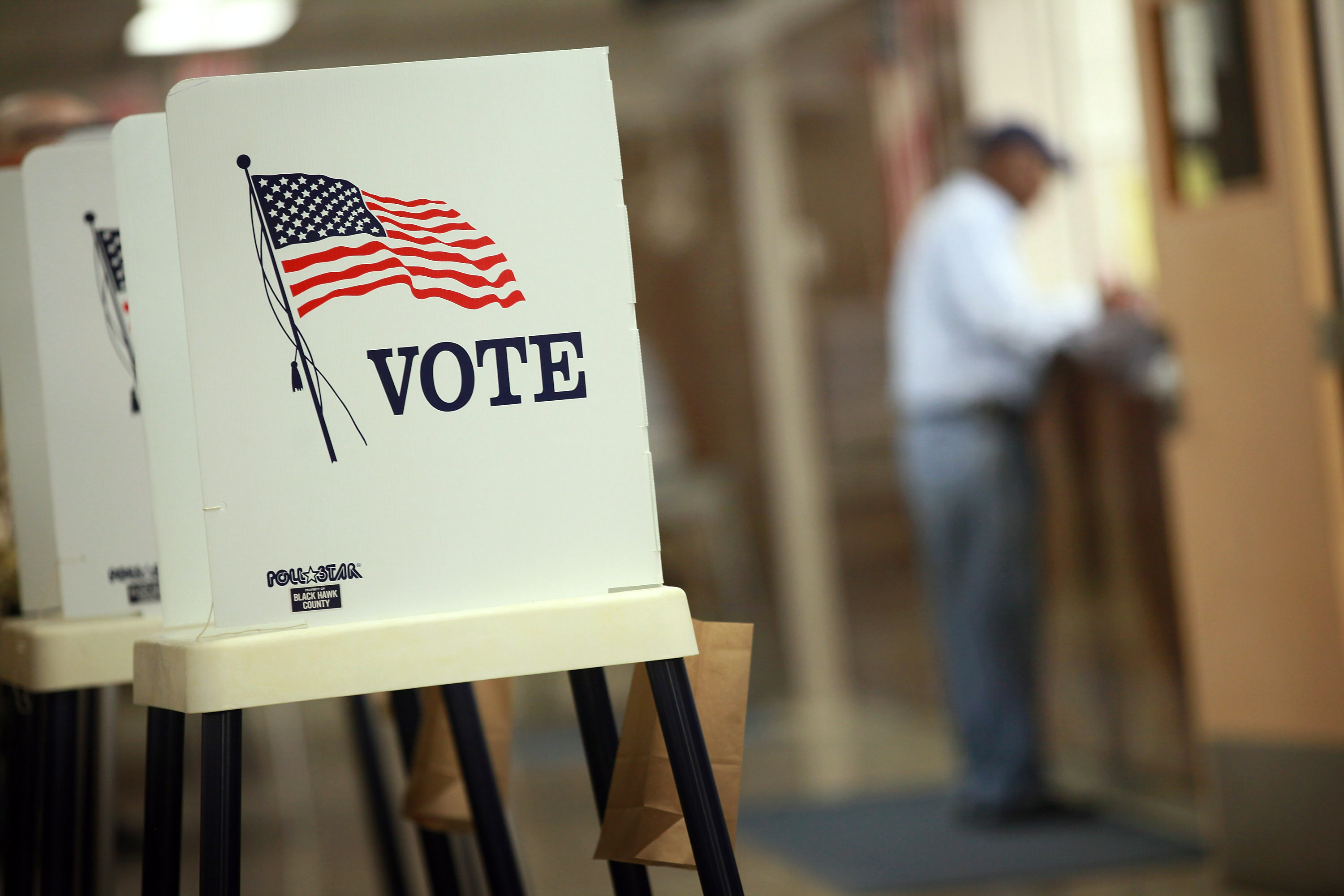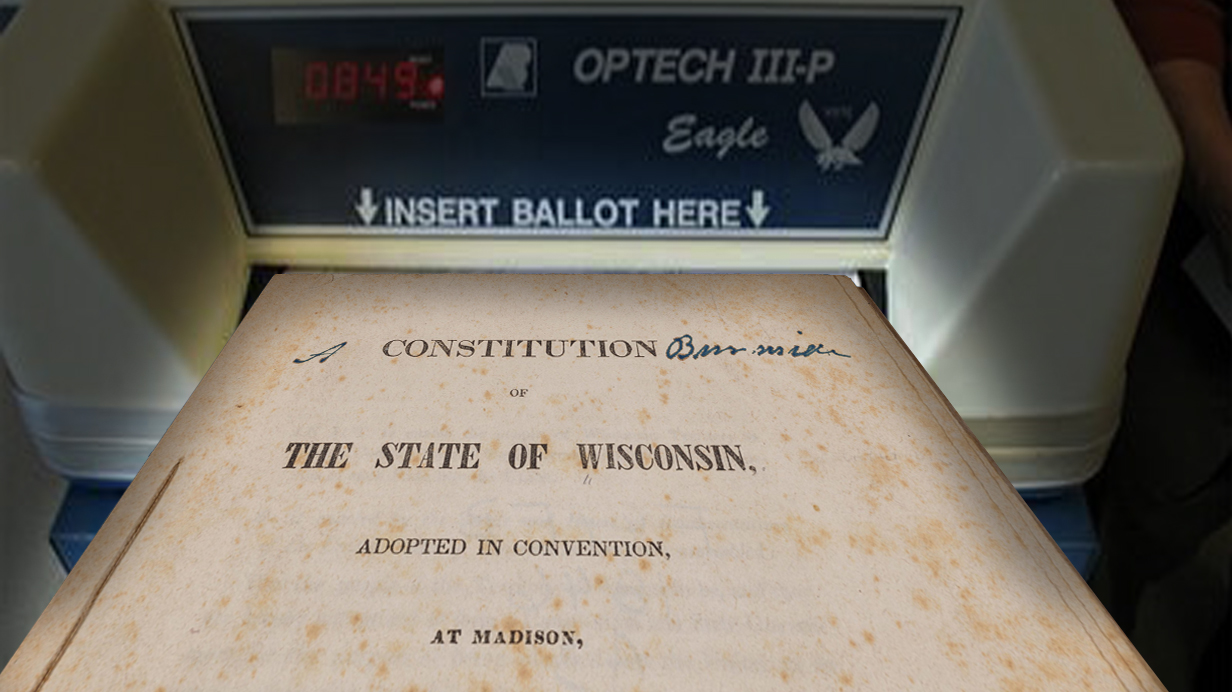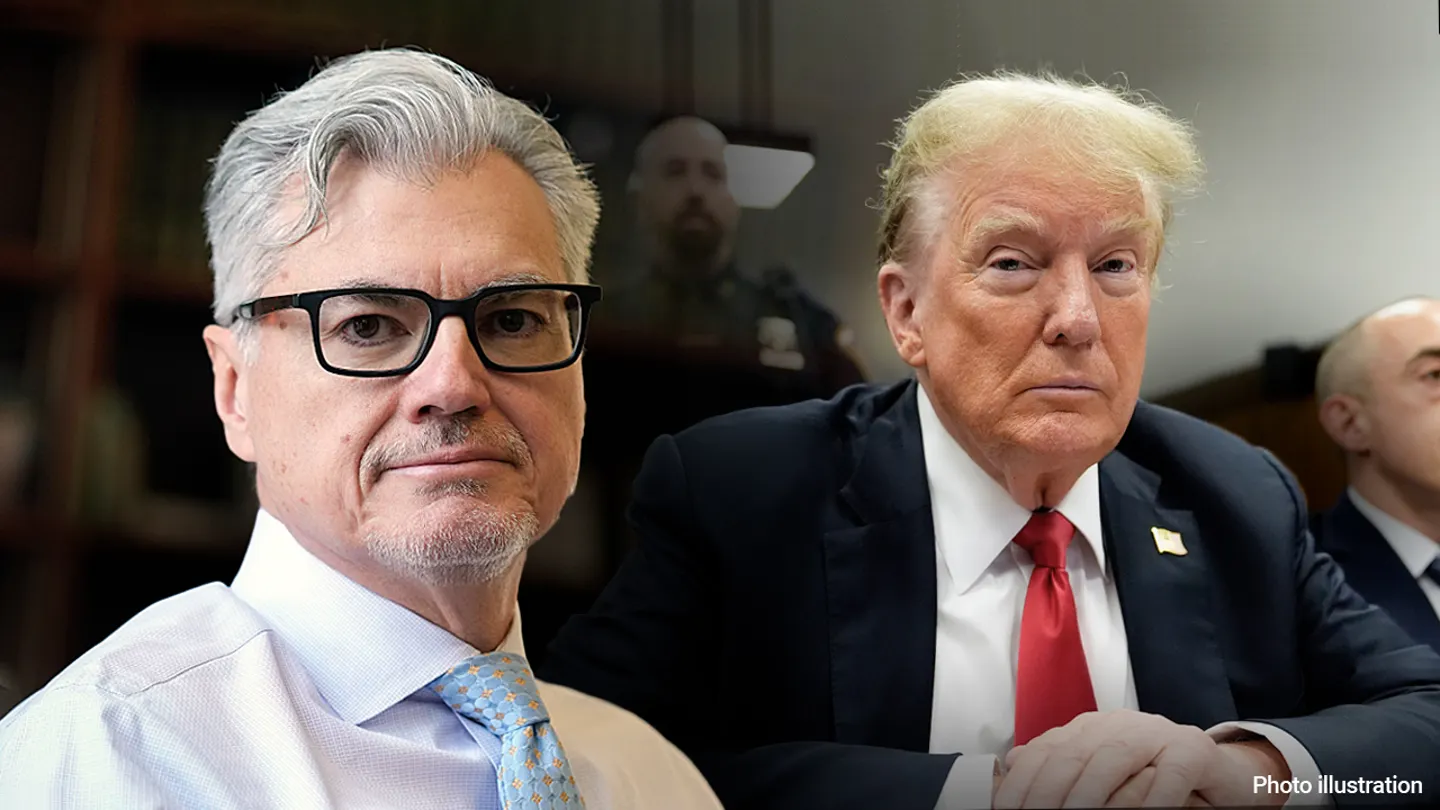 [bctt tweet=”.@GovEvers says, Businesses have the authority to make business decisions without the state interfering. His budget and rhetoric elsewhere suggest he doesn’t mean what he says. #wiright #wipolitics ” username=”MacIverWisc”]
[bctt tweet=”.@GovEvers says, Businesses have the authority to make business decisions without the state interfering. His budget and rhetoric elsewhere suggest he doesn’t mean what he says. #wiright #wipolitics ” username=”MacIverWisc”]
MacIver News Service | May 1, 2019
By M.D. Kittle
MILWAUKEE — Did Gov. Tony Evers just have a free-market epiphany?
SPOILER ALERT: No, he did not.
The big government Democrat who has proposed an $84.2 billion biennial, grow-government budget, remains ever committed to his big-spending liberal agenda.
“It sent shivers up people’s spines when he said he was going to unleash the Department of Natural Resources,” Sen. Tiffany said. “The words I saw from him yesterday were 180 degrees opposite.”
But Evers said something at Tuesday’s Milwaukee Press Club luncheon that surely caught the attention of free-market conservatives.
Responding to his public scuffle with Republicans over the state’s potentially hefty incentives package for Foxconn, Evers reiterated his assertion that Foxconn reached out to him in suggesting changes to the economic development agreement.
“I can see their (Republicans’) skittishness about things changing, but they did change, by golly. It wasn’t me that changed them, it was Foxconn that changed their business plan,” Evers said.
And then Evers seemed to transform into a fiscal conservative before the press club’s eyes, insisting that he respects Foxconn’s right to change course.
“Businesses have the authority to do that and they should be making business decisions without the state interfering,” the governor said.
An interesting turn of phrase from a liberal politician who recently told a gathering of Wisconsin Conversation Voters at the group’s “Lobby Day” that he wanted to “unleash” Department of Natural scientists to support his climate change agenda.
“We have scientists there for a reason, and this is to inform legislators about how science impacts their policy decisions,” Evers said. “So we’re going to unleash the folks that work at the Department of Natural Resources.”
To a lot of businesses — small and large — around the state, it sounded a lot like a return to the coercive, left-wing environmental policies of the past, before Evers’ predecessor, Republican Gov. Scott Walker, loosened the tight grip of regulators on the throat of the free market.
State Sen. Tom Tiffany said he appreciated Evers’ softening rhetoric on government “interference.”
“It sent shivers up people’s spines when he said he was going to unleash the Department of Natural Resources,” the Minocqua Republican said. “The words I saw from him yesterday were 180 degrees opposite.”
If the governor was saying that state government should be more circumspect about interfering with private businesses, Tiffany said he agrees with him.
But is that what Evers meant?
Assembly Speaker Robin Vos sounded skeptical of the liberal governor’s newfound free-market sentiments. The Rochester Republican on Twitter sardonically agreed with Evers’ assertion that the government shouldn’t interfere with business decisions.
“I agree. Like not mandating wage increases or repealing right to work or making it more expensive with higher unemployment taxes etc.,” Vos tweeted in response. “Perhaps he finally understands what we have been saying since he introduced his #liberalwishlist.”
I agree. Like not mandating wage increases or repealing right to work or making it more expensive with higher unemployment taxes etc. Perhaps he finally understands what we have been saying since he introduced his #liberalwishlist https://t.co/4TAvswwu7m
— Robin Vos (@repvos) April 30, 2019
Evers’ budget plan would raise spending by $7 billion-plus, if you remove the the smoke and mirrors of government accounting. It draws a significant chunk of its revenue by raising taxes on manufacturers, in a rollback of the state’s Manufacturing and Agriculture Tax Credit that has helped create tens of thousands of jobs.
It rewards Big Labor, at the cost of worker freedom. The budget plan restores the prevailing wage law for state and local public works projects. Evers asserts bringing back the Great Depression-era relic “ensures that workers are not underpaid relative to other workers performing similar in the area.” But the reforms of the past few years allow markets to set wage rates for local construction projects, saving taxpayers from well-documented cost overruns. In other words, the opposite of the “state interfering.”
Evers’ budget also would eliminate what the document describes as Wisconsin’s “so-called” right-to-work law. It’s called right-to-work precisely because it prohibits private-sector labor organizations from making compulsory union dues a condition of employment. In 2015, Wisconsin became the 25th right-to-work state in the nation when Walker signed the worker freedom legislation into law.
The governor’s budget plan permits the project labor agreements for public works projects that the former governor signed out of existence in 2017.
PLAs stipulate that only union firms can bid on a project, and many units of government required them — shutting out non-union shops.
The Republican-led reform law prohibits a government from requiring a PLA as a condition to bid on a taxpayer-funded project — a big win for the free market and the taxpayers who benefit from increased competition. Democrats have argued the law is yet another attack on unions and that it limits local control.
And then there are the layers of red tape that Evers’ version of the Green New Deal would bring, and the additional costs of his pathway to a $15-an-hour minimum wage.
It’s all having a chilling effect on the free market and business in Wisconsin, Tiffany asserts.
“In talking with constituents, they have paused here in their investment decisions and in how they are going to approach those investment decisions,” the senator said. “They really want to see how (Evers’) agencies are going to treat their customers, the people of the state of Wisconsin.”
“There is a wait-and-see attitude.”
At Tuesday’s Milwaukee Press Club event, the governor told attendees that he was getting an Egg McMuffin at McDonald’s Tuesday morning, when the “guy behind the counter” asked Evers if he was Bernie Sanders.
If the liberal fits, free-market conservatives say.
But maybe Evers has had a change of heart about unleashing government regulators on business.
“We’ll find out,” Tiffany said.




